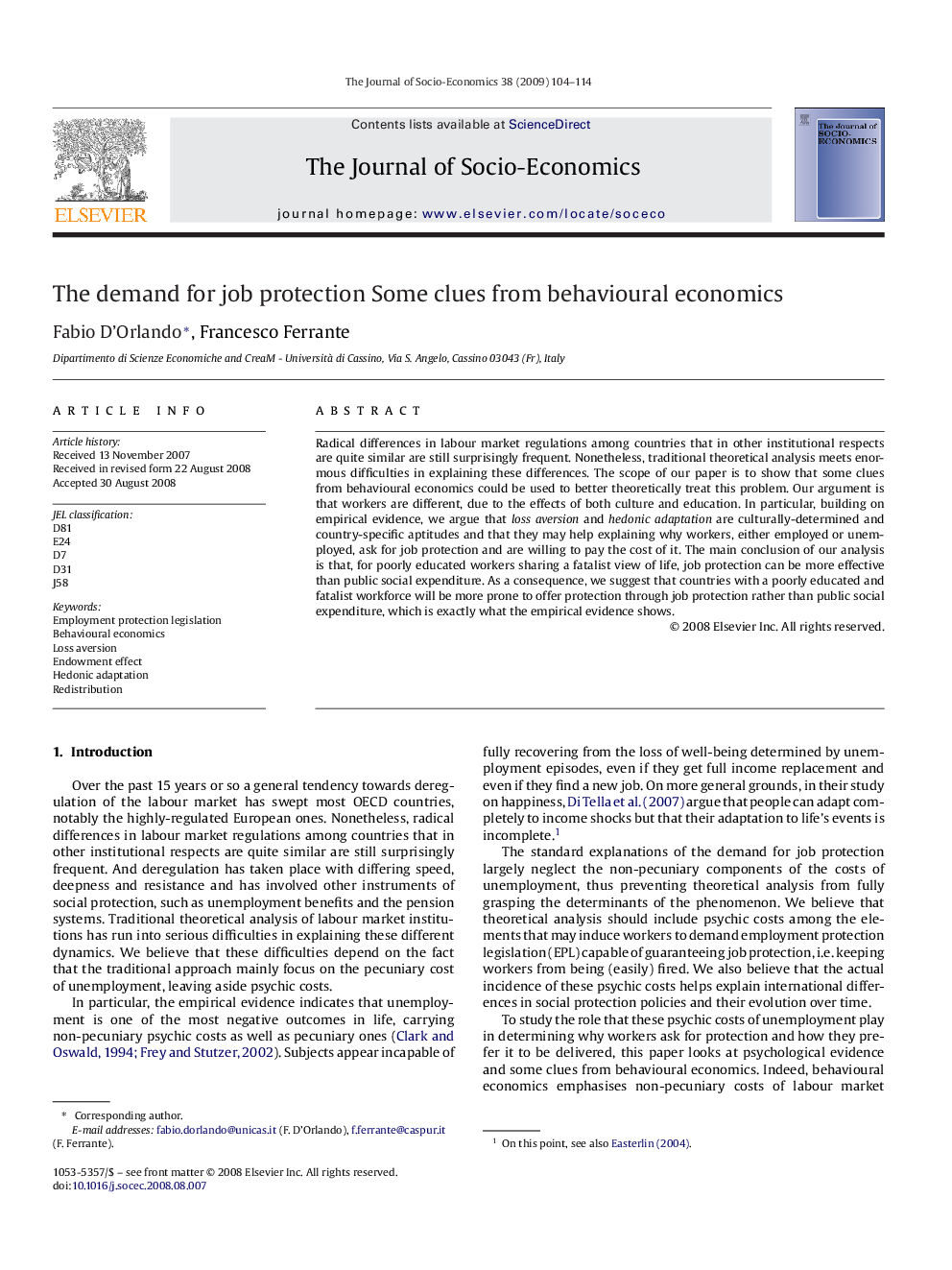| Article ID | Journal | Published Year | Pages | File Type |
|---|---|---|---|---|
| 971387 | The Journal of Socio-Economics | 2009 | 11 Pages |
Abstract
Radical differences in labour market regulations among countries that in other institutional respects are quite similar are still surprisingly frequent. Nonetheless, traditional theoretical analysis meets enormous difficulties in explaining these differences. The scope of our paper is to show that some clues from behavioural economics could be used to better theoretically treat this problem. Our argument is that workers are different, due to the effects of both culture and education. In particular, building on empirical evidence, we argue that loss aversion and hedonic adaptation are culturally-determined and country-specific aptitudes and that they may help explaining why workers, either employed or unemployed, ask for job protection and are willing to pay the cost of it. The main conclusion of our analysis is that, for poorly educated workers sharing a fatalist view of life, job protection can be more effective than public social expenditure. As a consequence, we suggest that countries with a poorly educated and fatalist workforce will be more prone to offer protection through job protection rather than public social expenditure, which is exactly what the empirical evidence shows.
Keywords
Related Topics
Social Sciences and Humanities
Economics, Econometrics and Finance
Economics and Econometrics
Authors
Fabio D'Orlando, Francesco Ferrante,
